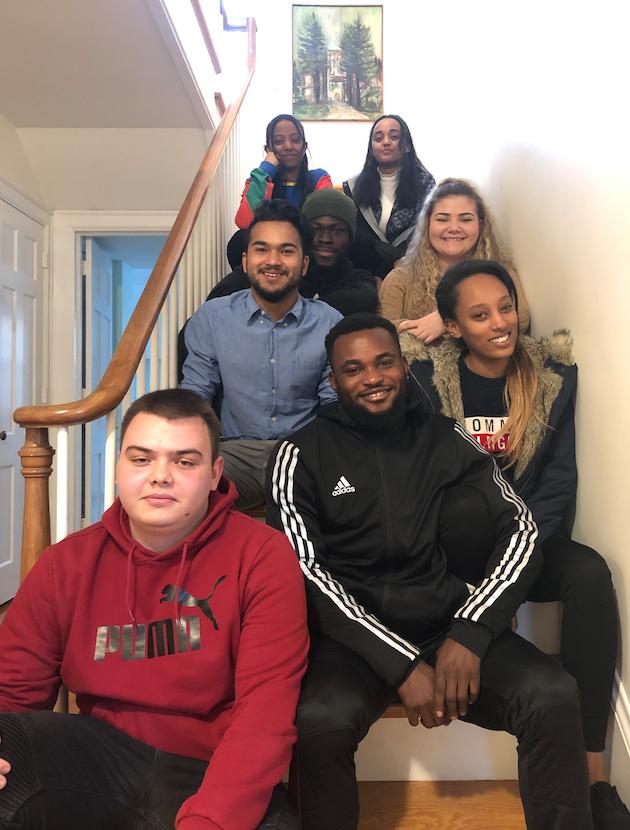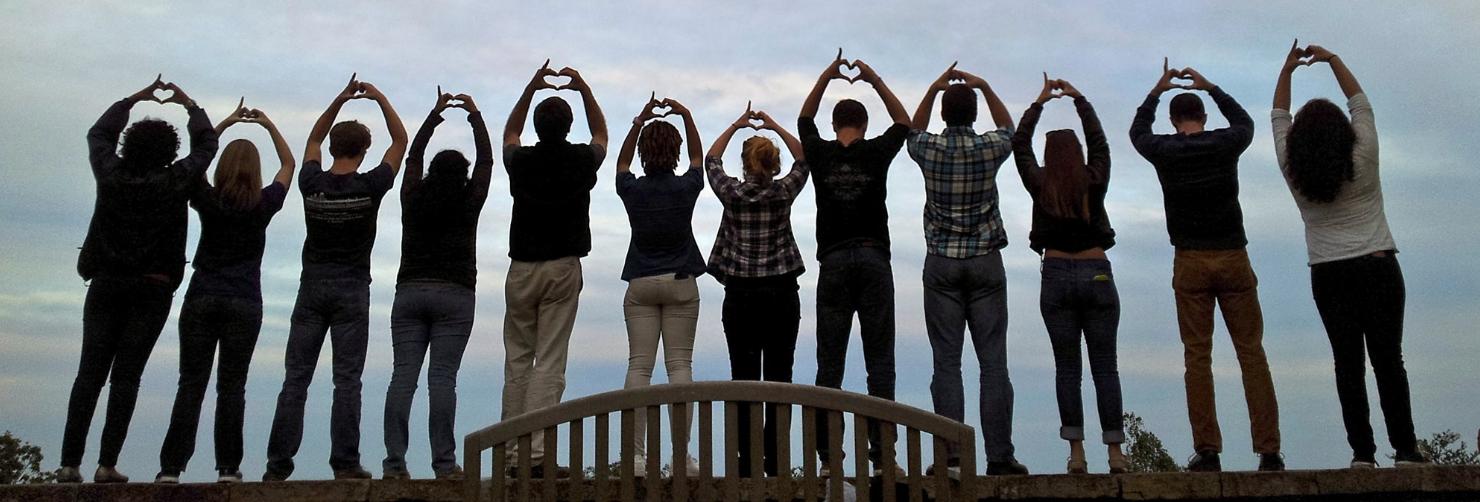
3 minute read
Developing Identity and Values
Developing Identity
The Bonner Program: Proven Impact Findings from the Bonner Student Impact Survey
Advertisement
Student Development Around Identity and Difference The first Bonner Student Impact Survey (2000-2010) pointed to “dialogue across difference" as a key component of the program’s positive impact (Keen & Hall, 2010). Diversity itself, of the program and campus, was found to be positive factor for students’ learning. With this in mind, the Student Impact Survey sought to understand students' perceptions around aspects of their identity –such as around race, ethnicity, religion, etc. The table below captures aspects of what students said. They point to ways that the Bonner Program is providing diverse students with a welcoming climate, one in which they can explore their identities. Starting as early as the first year, students' perceptions of the campus climate has a strong effect on their own sense of belonging and community connectedness. Analysis of student responses to these and other items within this sub-scale found that the higher the student rated the campus climate, the stronger were their own ratings on the specific items. This finding echoes other studies in the field. For instance, in a paper entitled Full Participation, Saltmarsh, Sturm, Eatman, and Bush (2011) suggest that diversity is needed across the student body, faculty, and staff for students’ civic learning to flourish. Campus climate is important for students’ development, with recent research pointing to connections between how students perceive the institution’s values and their willingness to be civically engaged, which in turn affects their own mental health and resilience (Mitchell, Reason, Hemer, & Finley, 2016).
Affiliation and Integration with Other Identity Groups
I feel I am allowed to explore different aspects of my identity and culture in the Bonner Program. Not at All Slightly A Little Moderately Mostly Exactly
3% 2% 5% 36% 36% 36%
I often feel like I should play down an important part of my culture or identity within Bonner.
My culture and/or identities are welcomed within the Bonner Program.
My culture and/or identities are welcomed within the broadercampus community. 46% 15% 8% 13% 10% 9%
2% 1% 4% 7% 32% 53%
1% 2% 5% 15% 41% 46%
“When I began Bonner, I was in an abusive relationship, depressed, anxious, scared, and I had no selfesteem. Learning to be kind to myself through Bonner (and other things) was the most important thing. By being kind to myself, I was able to be better to others.” - Bonner Senior
Students to Learn to Thrive - and Contribute
Wellness and thriving are key themes within higher education for students today. According to the American Psychological Association (2013), anxiety is major concern among college students (41.6%), followed by depression (36.4%) and relationship problems (35.8%).
In 2019, Student Impact Survey findings again pointed to clear gains in sub-scales for students’ hope, accountability, and tenacity between the first and senior year. Students’ scores in wellness also increased significantly. When asked about specific challenges, these students reported fewer incidences of them. For instance, less than 2% answered frequently to the statement, “I have considered leaving this institution or quitting school,” and nearly 60% said they had never considered quitting. Additionally, fewer than 2% answered frequently to “I have regretted my decision to enroll in college at this institution” and 59% also stated they had never felt that way.
“I have learned how interconnected and complex are the problems facing our communities. For example, I cannot have a singular focus on improving education, but must also be concerned with socioeconomic and health factors that impact how students perform in schools.” - Bonner Senior
Commitment to Social Change and Justice The Bonner Program, like many campuses, aims to help students develop a commitment to values and practices like equity and social justice. Related to their views on social justice:
• 96% of seniors report they are able to respect and appreciate people’s diverse social identities. • 96% of seniors believe it is important to support community organizations and institutions that help individuals and groups achieve their goals within their communities. • 97% of seniors believe it is important to provide opportunities for individuals and groups to describe their challenges, problems, experiences, and goals in their own terms. • 97% believe that they can have a positive impact within their communities. Between the first and senior year, students' views about achieving social justice and solving entrenched problems continue to evolve through experience.

Students are part of a community that supports holistic growth and learning, such as at Bonner Orientation at Montclair State University. Students read The Hate You Give.







